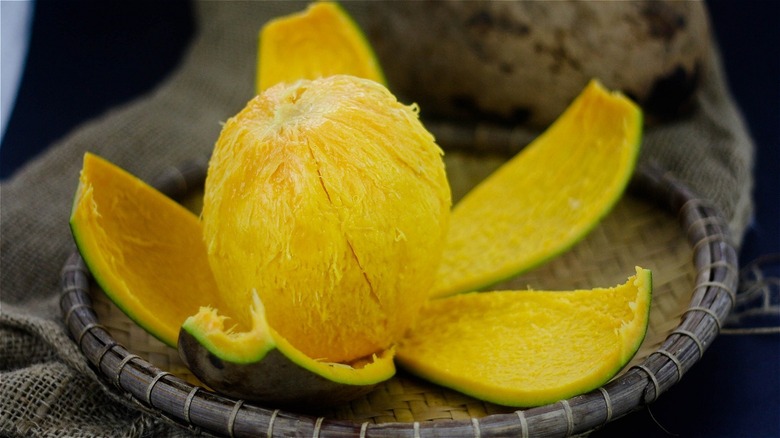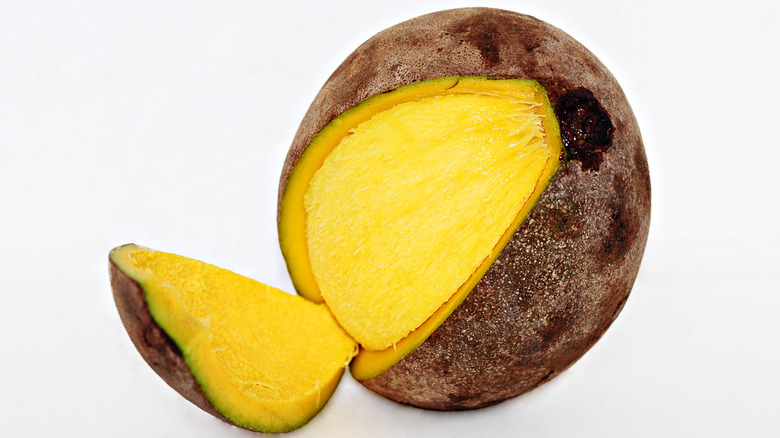The Savory Mango You Probably Didn't Know About
There's a reason why mango has been unofficially named the king of fruits. Its sweet taste, soft and juicy texture, and bright color aside, Healthline finds that just a cup of fresh mango can make up for 67% of your daily recommended vitamin C intake. It has nutrients that can boost your immune system and plant compounds to maintain cell health. But that's not all: Mangoes are also considered sacred in many parts of the world where it is believed that Buddhist monks meditated under the shade of the fruit's trees (via Food Network).
Mangoes are native to southeast Asia, with India in particular responsible for nearly half of the world's mango production. The National Horticulture Board of India says that 1,500 varieties of mango exist in India alone. Unfortunately, barely any find their way to the U.S. due to trade restrictions.
It should come as no surprise, then, that there are probably at least a few hundred varieties of mango out there that you've never even heard of. Many of these are familiar variations on the sweet, slightly tart mangoes you know from your supermarket. A savory type called bambangan, however, is nothing like your typical mango.
This mango tastes like onions and eggs
While most varieties of mango belong to the Mangifera indica species, the bambangan belongs to the Mangifera pajang species, which are classified as vulnerable by the International Union for Conservation of Nature, according to Atlas Obscura. There's a reason why you may never have heard of the savory mango: Bambangan is a rare fruit only found on the island of Borneo off the Malay Peninsula where it goes by several names (via Borneo Talk). Malaysians call it asam emban or bua embawang, the native population of Borneo calls it bua mawang, and Brunei refers to the fruit as bambangan.
With thick brown skin and a funky smell similar to that of a durian, bambangan mangoes can be the size of a bowling ball and weigh as much as 5 pounds. Even more peculiar, however, is the mango's taste. Not only is bambangan far from sweet, but Atlas Obscura describes it to have "a savoriness reminiscent of French onion soup and eggs hovering over a base of sourness." YouTuber Jared Rydelek, who documents various species of fruits on his channel, rates bambangan a six on a scale of "zero to lemon" in terms of sourness. That also explains why, unlike most varieties of mango that have sweet applications, bambangan is mostly used in salads and chutneys or is turned into a pickle. Curious? Anyone wanting to taste the rare savory mango for themselves will have to make a trip to the island of Borneo.

